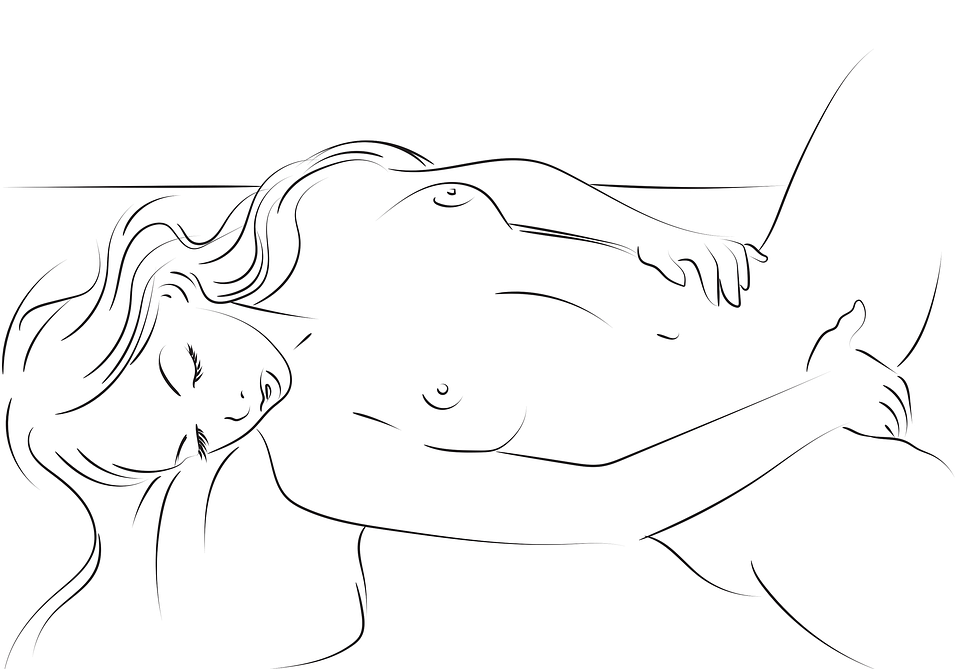?Charlotte I am masturbating, I told you I will be doing that all day?
The subject of masturbation is tagged “taboo” for people(esp marri ed couples) to openly talk about. Masturbation is a common and healthy sexual behavior, but it can be a challenging topic to discuss. Even adults who are in close sexual, romantic, or other intimate relationships might feel embarrassed about bringing up the topic.
“Huh!”, Dami sighed as she dropped her car keys on the counter—it was a hectic day. She sauntered across the room still thinking of what happened earlier before heading to work.
Dami headed off to work that morning just as she always did, leaving 30 minutes before her husband, Tunde. She realized she’d forgot to grab her sanitary pads soon after she left. When she ran into the house to grab it and go, she accidentally saw Tunde in the shower — masturbating. She had never assumed that he pleasured himself. Dami’s feelings were all over the map that morning:
“Is it even okay to masturbate in a relationship? Should I pretend I saw nothing? What should I do? Is it normal?”

After reading the ‘talking sex’ article on Federal Character about the importance of having healthy sex conversations with your partner, she decided to talk to him about it instead of worrying.
Masturbation is the self-stimulation of the genitals to achieve sexual arousal and pleasure, usually to the point of orgasm (sexual climax). It is commonly done by touching, stroking, or massaging the penis or clitoris until an orgasm is achieved.
“Are you pleasuring yourself because you feel like we aren’t having enough sex?”, Dami asked Tunde after they both got settled that night. Still thinking about the scenario, she hoped that wasn’t the case and he still finds her attractive.
“No babe, that’s not true”, He responded, trying to choose his words carefully so he wouldn’t hurt her feelings. “I woke up hard and horny and I didn’t want to bother you. So, I thought I’d relieve myself a little before heading for work”.
“Ohhh…”
Having the conversation with him made her realize that there is so much that gets pushed under when it comes to their individual sexual needs and desire. They both decided to share their needs without hesitating and he also encouraged her to do things she considered a taboo.
Masturbation comes with a fair share of stigma (especially female masturbation and self-pleasure) and so many of us naturally feel threatened by the concept.
It is common to feel differently about masturbation when one is single compared to being partnered up or married. For example, just like Dami, you might worry that your partner’s desire to masturbate means that you are not meeting their sexual needs—but this is not necessarily the case.

Masturbation Myth
Due to the misconceptions and controversies surrounding masturbation, people are often embarrassed to talk about it. These feelings may be partly a result of the negative, mixed, or even completely false messages people receive on the subject of masturbation.
If masturbation is part of your sexuality and sexual expression, it’s important to know these facts:
- Masturbation does not cause acne.
- Masturbation does not cause cancer.
- Masturbation does not cause hairy palms.
- Masturbation will not “make you go blind.”
- Masturbation is not self-abuse.
- Masturbation is not infidelity.
- Masturbation is not unnatural.
- Masturbation will not cause the penis to shrink.
- Masturbation will not give you a sexually transmitted infection (STI).
- Masturbation will not hinder your social or emotional development.
- Masturbation does not cause mental illness.
- Masturbation will not make you sterile.
What’s a healthy way to view masturbation?

It’s appropriate, and a valid option in a relationship, when one’s partner is unavailable due to physical separation, fatigue, recovery from childbirth, or illness. It also helps balance discrepancies in frequency desires. It isn’t possible for two people on a relationship to have the same level of sexual interest, hence, masturbation is a good option.
It’s healthy to masturbate if you are partnered as long as the behavior does not interfere with the sexual intimacy that you have with your partner. In fact, masturbation is part of many couples’ sexual routine.
When does it become unhealthy
Dami and Tunde were able to talk about everything including their needs, desires and how they want to be touched and explored. She got really comfortable with him and learnt how to explore her body and give herself the utmost pleasure.
But…
In the ongoing sexual trysts, something doesn’t feel right. It is true that they unlocked a part of themselves that was kept hidden, but Dami wasn’t sure if it had solved any problem or created more problems for them. It seemed like they had lost this connection, they were no longer intimate. No more intense gaze when he slides in, most nights, after they help each other masturbate they are too tired to go further.

While masturbation is most often a healthy behavior, there are times when it is or can become unhealthy. For example, if a person is unable to function in their day-to-day life, unable to attend to their responsibilities at home, school, work, or experiences a health problem related to excessive masturbation, or gets addicted, the behavior would no longer be considered healthy.
Knowing when to draw the line and finding a common ground with your partner is important. The most significant thing to look out for is the intimacy/connection you share with your partner — making sure it doesn’t get lost in the flames of your personal desires.
What are your thoughts on masturbation? Let us know in the comment section below.















